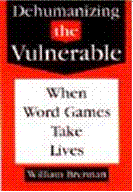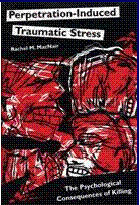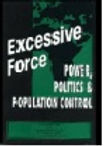Book Recommendations
Delving Deeper into the Consistent Life Ethic
Consistently Opposing Killing: From Abortion to Assisted Suicide, the Death Penalty, and War
Edited by Rachel M. MacNair & Stephen Zunes
Several authors discuss the consistent life ethic; here’s the Table of Contents:
Connected Violence
Introduction: The Power of Being Consistent / Rachel MacNair
1. Word Games Take Lives / William Brennan
2. The Left has Betrayed the Sanctity of Life: Consistency Demands Concern for the Unborn / Mary Meehan
3. The Indivisibility of Life and The Slippery Slope / Nat Hentoff
4. Israel/Palestine and Abortion / Stephen Zunes
5. Understanding How Killing Traumatizes the Killer / Rachel M. MacNair
6. Abortion and the Feminization of Poverty / Thomas Strahan
7. The Direct Killing of Racism and Poverty / excerpts from various sources
8. When Bigotry Turns Disabilities Deadly / excerpts from various sources
9. Right to Life of Humans and Animals / Vasu Murti
10. Does the Seamless Garment Fit? American Public Opinion / Edith Bogue
11. Perceptions of Connections / Rachel MacNair
Connected Solutions
12. Activists Reminisce: An Oral History of Prolifers for Survival / Taped interview.
13. Activism Throughout the Centuries / Mary Krane Derr
14. Changing Hearts and Minds / Mary Meehan
15. The Law’s Role in the Consistent Life Ethic / Carol Crossed
16. Pro-Life Politics: From Counter-Movement to Transforming Movement / James R. Kelly
17. Connecting the Dots – Nonviolently / Michael Nagler
18. People Power and Regime Change: How Nonviolence Spreads Democracy / Stephen Zunes
19. Conflict Transformation: Dissolving "Battle Lines" / Rachel MacNair
Peace Psychology Perspectives on Abortion
Edited by Rachel MacNair
This is a multiple-perspectives book. It offers what psychology studies show, and then considers explanations from both the pro-life and pro-choice point of view – a peace-studies approach of being familiar with different ways of seeing things. It’s a book that has been well received by people who want to see their own viewpoint as well as others, and not something limited to a pro-life view.
Part 1. The Psychology of Violence against Women:
Where Pro-Choice and Pro-Life Conclusions are Almost Indistinguishable
(intimate partner violence; coercion or pressure; sexual trafficking and rape; war; and "gendercide" in sex-selection abortions)
Part 2. Post-abortion Aftermath
(methodology; risk factors; therapy; pro and con on what the aftermath for women is; lost fatherhood; abortion doctors and staff)
Part 3. Other Contentious Topics
(child abuse; perspectives on specific populations including people with disabilities, racial minorities, people in developing countries, LBGT people, and conscientious objectors; and empirical data on impact of legal regulations)
Part 4. The Constructive Program
(pregnancy prevention; meeting the needs of pregnant women, new mothers, children and families; transforming the debate over abortion)
Consistently Pro-Life: The Ethics of Bloodshed in Ancient Christianity
Written by Rob Arner
Paperback
Mennonite author Rob Arner says “every author that I encountered from before Constantine seemed to denounce human bloodshed in a variety of contexts, from abortion, to killing in war, and everything in between, espousing and living what may be termed a consistently pro-life ethic. This project is my attempt to comprehensively flesh out this thesis.” The book thoroughly documents how across-the-board opposition to violence was in early Christianity.
The Early Church on Killing: A Comprehensive Sourcebook on War, Abortion, and Capital Punishment
Edited by Ron Sider
Paperback
The publisher explains, “Noted theologian Ron Sider lets the testimony of the early church speak in the first of a three-volume series on biblical peacemaking. This volume offers a thorough, comprehensive treatment on topics of perennial concern--war, abortion, and capital punishment--providing English translations for all extant data directly relevant to the treatment of these issues by the early church until Constantine.”
The Seamless Garment: Writings on the Consistent Ethic of Life
Cardinal Joseph Bernardin
Edited by Thomas A. Nairn
Paperback
This volume collects all thirty-five of Cardinal Joseph Bernardin's addresses and writings on his theme of the seamless garment, from his first speech at Fordham University in 1983 until his last address at Georgetown University in 1996.
The Consistent Ethic of Life: Assessing Its Reception and Relevance
Edited by Thomas A. Nairn
Paperback
Ten ethicists turn their attention to the legacy of Cardinal Joseph Bernardin's Consistent Ethic of Life in the twelve years since he died in 1996.
Pro-life Feminism: Yesterday & Today (Expanded Second Edition)
Edited by Mary Krane Derr, Rachel M. MacNair & Linda Naranjo-Huebl
Hardcover or Paperback
Kindle
Nook
The historical anti-abortion and otherwise consistently pro-life writings of our feminist foremothers are covered in Part One; contemporary voices are heard in Part Two.
See review quotes
Achieving Peace in the Abortion War
Written by Rachel M. MacNair
Order from publisher, paperback and e-book
Order from Barnes & Noble
Order from amazon
Order on Kindle
Order on Nook
Do doctors and nurses experience trauma from doing abortions? What does the psychology of consistency have to say about abortion behavior? The principles of peace psychology are applied to abortion practice and the dynamics what’s happening with the current U.S. decline.
Dehumanizing the Vulnerable: When Word Games Take Lives
Written by William Brennan
Hardcover
This is a classic in understanding the depth of the consistent life ethic. Brennan shows how the language used against vulnerable groups has common points – describing them as non-human, animals, parasites, diseases, garbage, and so forth. He then applies this systematically to different targeted groups: women, unborn children, ethnic and racial minorities, political opponents and enemies in war.
Perpetration-Induced Traumatic Stress: The Psychological Consequences of Killing
Written by Rachel M. MacNair
Paperback
Hardcover
Perpetration-Induced Traumatic Stress (PITS) is the form of Posttraumatic Stress Disorder (PTSD) symptoms caused not by being a victim or rescuer in trauma, but by being an active participant in causing trauma. Sufferers of PITS may be in the roles of soldiers, executioners, or abortion doctors and nurses, where it is socially acceptable or even expected to kill. Scattered evidence of PITS is consolidated, its implications are explored, and exciting potentials for future research are suggested.
The idea of applying the post-trauma symptoms to those who kill is obvious to most peace activists, but has been something of a blind spot in the scholarship on trauma. The idea of applying it across different groups of those who kill, finding common themes, is obvious to activists on the consistent life ethic.
The Sacredness of Human Life: Why an Ancient Biblical Vision is Key to the World’s Future
Written by David P. Gushee
Paperback
From the publisher’s blurb: “Tracing the concept of the sacredness of human life from Scripture through church history to the present day, David Gushee argues that viewing human life as sacred is one of the most precious legacies of biblical faith — albeit one that the church has too often failed to uphold. Besides providing a masterful historical survey, Gushee's discussion covers the many current ethical challenges and perspectives that will impact the survival and flourishing of human life, including biotechnology, the death penalty, abortion, human rights, nuclear weapons, just war theory, women's rights, and creation care.”
For Love of Animals
Written by Charles Camosy
Paperback
Starting with the connection of pro-life views and compassion to animals, showing the connections with various issues of violence, and with a final chapter entitled “The Consistent Life Ethic,” Charles Camosy makes the case for vegetarianism and other forms of compassion to animals from the viewpoint of the Christian tradition.
Religions and Nonviolence:
The Rise of Effective Advocacy for Peace
Written by Rachel MacNair
Part 1: “Nonviolence in Religious Traditions” showcases each faith group, what’s common among them all, and how human thinking has developed on nonviolence. When considering how each individual religion has countered violence, all of the issues in the consistent life ethic are considered.
Part 2: “Religion in Nonviolence Traditions” considers different nonviolence practices and theories. It discusses religious insights and practices in advancing their use.
Many books have covered the nonviolence tradition in one specific tradition or several related ones, but this one offers an overview of many, one by one. This will advance the practice of nonviolence, the insights of religion, interfaith dialog, peace studies and religion studies.
Executing Grace:
How the Death Penalty Killed Jesus and Why It’s Killing Us
Written by Shane Claiborne
Making a solid case against the death penalty on religious grounds, Shane shares many stories of how it impacts people in the real world.
Excessive Force: Power Politics and Population Control
Written by Elizabeth Liagin
Paperback
Documentation of worldwide coercive birth control as a racist form of violence against women.
Swimming against the Tide: Feminist Dissent on the Issue of Abortion
Edited by Angela Kennedy
Paperback
Pro-life feminism from British and Irish perspectives.
The Liberal Case Against Abortion
Written by Vasu Murti
Paperback
This book explores rationales for opposing abortion from a liberal political perspective.
Gaining Mind of Peace: Why Violence Happens and How to Stop It
Written by Rachel MacNair
Nook
Intended for young people (middle school up to high school), a consistent-life friendly explanation of the insights of peace psychology.
Review from Educators for Nonviolence: "This 172 page book is written for young people. My Peace and Conflict Studies class of high school sophomores, juniors and seniors found this book very accessible and interesting. We had great discussions based on the chapter readings, and I am sure the one of the reasons the students left the course with a strong understanding of nonviolence is because of Rachel MacNair's book. It was easy to get the book adopted by our public school board."
History Shows: Winning with Nonviolent Action
Written by Rachel M. MacNair
Paperback
With color pictures, a series of one-page stories on how well nonviolence has worked throughout history and why. Different forms of violence being countered include that against unborn children, gently suggested
The Psychology of Peace: An Introduction (second edition)
Edited by Rachel MacNair
Hardcover
A college textbook which in addition to courses directly in Peace Psychology can be applied as a supplemental text in a wide variety of disciplines.
Working for Peace: A Handbook of Practical Psychology
Edited by Rachel MacNair
Paperback
Several psychologists share their expertise on improving activism -- for ourselves, for our groups, and for our messages.
Books by Stephen Zunes
Political scientist Stephen Zunes (co-editor of Consistently Opposing Killing) is an expert in using nonviolence theory to understand international events. See his web page for all his books and updates.
Related Books by Consistent Life Sympathizers
Related Books of Value - Even though not by CL Sympathizers
Defenders of the Unborn:
The Pro-life Movement before Roe v. Wade
Written by Daniel K. Williams
This book reveals the hidden history of the pro-life movement in the United States, showing that the as-yet-unnamed consistent life ethic actually had quite a bit of influence in the movement’s origins.
Imbeciles:
The Supreme Court, American Eugenics, and the Sterilization of Carrie Buck
Written by Adam Cohen
Carrie Buck was involuntarily institutionalized by her foster parents in order to cover up that her pregnancy was caused by their nephew’s raping her. Cohen tells her story sympathetically in the context of the America eugenics movement and the powerful men who were seeking to have thousands of people involuntarily sterilized. The Buck v. Bell decision has never been overturned, but the view of it as an embarrassment and horror story is currently widespread – as seen by this book and its reviews. Lessons applying to dealing with poverty and racism are obvious to all, and lessons applying to the social dynamics of dealing with Roe v. Wade are obvious to us.
Unnatural Selection: Choosing Boys Over Girls, and the Consequences of a World Full of Men
Written by Mara Hvistendahl
Paperback
This is a major international problem: the catastrophic disappearance of girls and women caused by sex-selection abortion. In this book, Hvistendahl (who takes the “pro-choice” view) notes that many parents use technology to determine sex before birth and abort the girls – roughly 160 million unborn girls have been destroyed this way. In several countries, the birth ratio is around 900 girls to 1,000 boys.
Ross Douthat, commenting on the book, points out that “Western governments and philanthropic institutions have their fingerprints all over the story of the world’s missing women. From the 1950s onward, Asian countries that legalized and then promoted abortion did so with vocal, deep-pocketed American support. Digging into the archives of groups like the Rockefeller Foundation and the International Planned Parenthood Federation, Hvistendahl depicts an unlikely alliance between Republican cold warriors worried that population growth would fuel the spread of Communism and left-wing scientists and activists who believed that abortion was necessary . . . For many of these anti-population campaigners, sex selection was a feature rather than a bug, since a society with fewer girls was guaranteed to reproduce itself at lower rates. . . [The victim is] society at large, [Hvistendahl] argues, citing evidence that gender-imbalanced countries tend to be violent and unstable. It’s the women in those countries, she adds, pointing out that skewed sex ratios are associated with increased prostitution and sex trafficking. These are important points. But the sense of outrage that pervades her story seems to have been inspired by the missing girls themselves, not the consequences of their absence. Here the anti-abortion side has it easier. We can say outright . . . The tragedy of the world’s 160 million missing girls isn’t that they’re ‘missing.’ The tragedy is that they’re dead.”
Center for Non-Global Killing
The Center for Global Non-Killing offers an extensive list of books that looks at “non-killing” through various disciplines and in various languages. All are available as pdfs on the web in addition to paperbacks.
The volumes on Nonkilling Psychology and one of the two chapters on psychology in Toward a Nonkilling Paradigm are written by Rachel MacNair and so directly cover all consistent-life concerns.
































